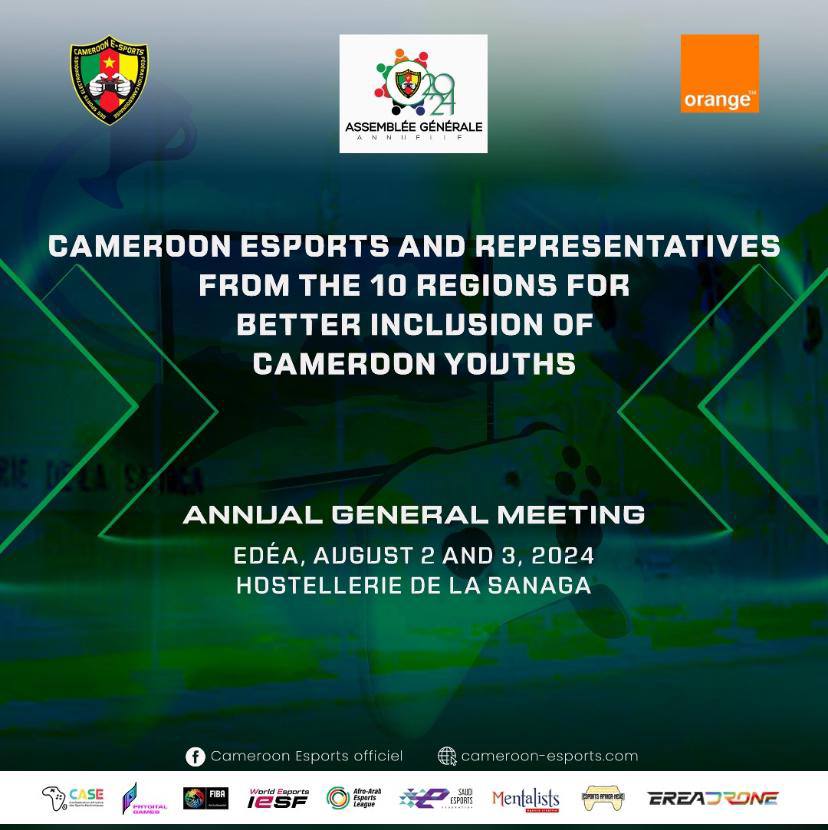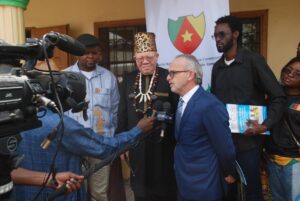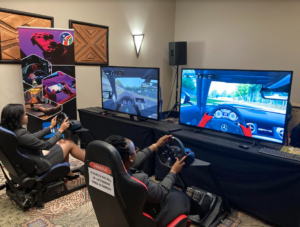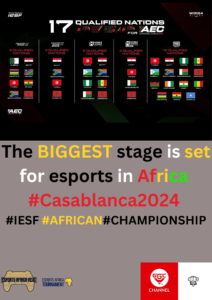Esports Education in Africa- Educating the Teachers!
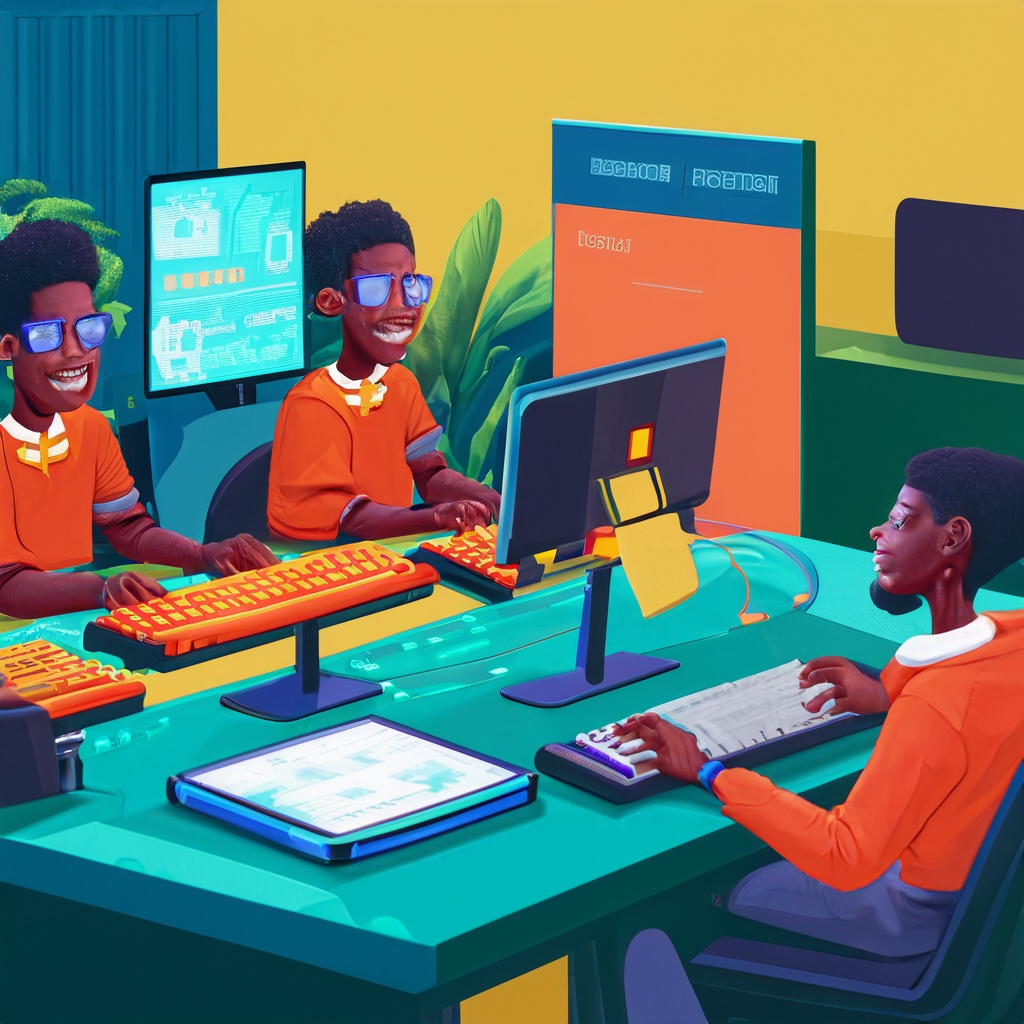
Esports, game development, and the Esports World Cup are phrases that are becoming increasingly common in conversations within various communities worldwide, especially in Africa.
There is a growing interest in competitive esports and the application of transferable skills to game development.
This interest raises questions about the sustainability of esports development. While much of the discussion and interest focuses on competitions and prize pools, there is a need for structured formal education and community-based knowledge transfer to cultivate the next generation of game developers and esports athletes.
Across many African regions, game development and esports often spark debate, with traditional educational paths and professions typically held in higher esteem than, for instance, being an esports athlete.
To shift these narrow perspectives and foster a paradigm change in the understanding and application of skills derived from gaming and esports, it is advisable to integrate esports education within conventional educational frameworks and promote community knowledge exchange.
The initial step involves recruiting a group of educators. However, the question arises: who will teach the teachers? Introducing esports and game development education in Africa offers both thrilling prospects and distinct challenges.
Opportunities are burgeoning in the sector. Esports and game development are rapidly gaining global traction, including within Africa, where there is a growing enthusiasm among the youth for competitive gaming. This presents a receptive audience for esports education. The skill sets honed in this field are versatile, applicable across various industries such as engineering, medicine, and social sectors.
Africa’s youthful demographic represents a ‘gold mine’ for the burgeoning esports and game development economy. The continent is home to a vast reservoir of untapped gaming and development talent. With adequate education and support, this talent pool has the potential to make a substantial impact on the global gaming scene.
The economic potential in esports and game development is considerable, offering economic opportunities across various industries. Establishing a sustainable esports sector in Africa could lead to job creation, economic expansion, and investment attraction. This includes the development of physical infrastructures like esports hubs, arenas, fashion trends, and hardware assembly units, as well as the advancement of VR and XR technologies for cross-industry applications.
Cultural Representation: The development of indigenous games and the support of local esports communities can enhance the global visibility of African culture and narratives.
Educating teachers about esports in Africa is vital for sector growth. A comprehensive approach is necessary, leveraging both the deep-rooted knowledge within communities and structured education from traditional educational institutions.
Educational institutions, including universities and colleges, could adopt and offer specialized training programs or workshops for educators aiming to incorporate esports into their teaching. These programs might address the advantages of esports education, the setup and management of esports initiatives, and the integration of esports into standard academic subjects.
Professional Development Organizations, National Federations, and Associations could act as educational bodies providing professional development for teachers through workshops, seminars, or online courses on esports education. Such efforts can keep educators abreast of the latest trends, pedagogies, and resources in esports. The involvement of Esports Associations and Federations in Africa in educating teachers about the educational possibilities of esports is crucial for maintaining relevance and supporting the ecosystem. They can facilitate training sessions, conferences, or webinars to achieve this goal.
Engaging government bodies or ministries of education in the esports sector is challenging, as many from the older generation may not be in tune with current trends and the Gen Z economy. However, once they recognize the industry’s potential, they could launch initiatives to train teachers in esports education. This could be part of a wider effort to modernize educational systems and may involve partnerships with industry stakeholders, funding for teacher training programs, and the creation of educational resources.
Industry partnerships and collaborations with esports organizations, game developers, and tech companies can offer valuable expertise and resources for teacher training. Such partnerships can aid in the creation of educational materials, curriculum development, and provide practical training opportunities for educators. For instance, the esports tournament operator Giiks Game City has created a coaching manual to support the development of the esports coaching field. (@ggchchannel, www.ggcgh.com)
Online platforms focused on esports education provide training courses, webinars, and resources accessible to teachers everywhere. These platforms offer educational materials, lesson plans, and best practices for incorporating esports into the curriculum.
Transferring knowledge within the community through peer-to-peer education and the creation of peer learning networks or communities of practice allows teachers to exchange experiences, strategies, and resources pertinent to esports education. Such networks offer support, motivation, and opportunities for collaboration to educators keen on integrating esports into their instruction.
Africa can craft its own narrative in the evolution of esports. A generation taking the helm through a collaborative approach that includes educational institutions, professional development organizations, industry stakeholders, and government bodies is crucial for effectively instructing educators about esports education in Africa. By offering training, resources, and support, teachers can be equipped to harness the potential of esports to boost student engagement, learning outcomes, and career prospects.

